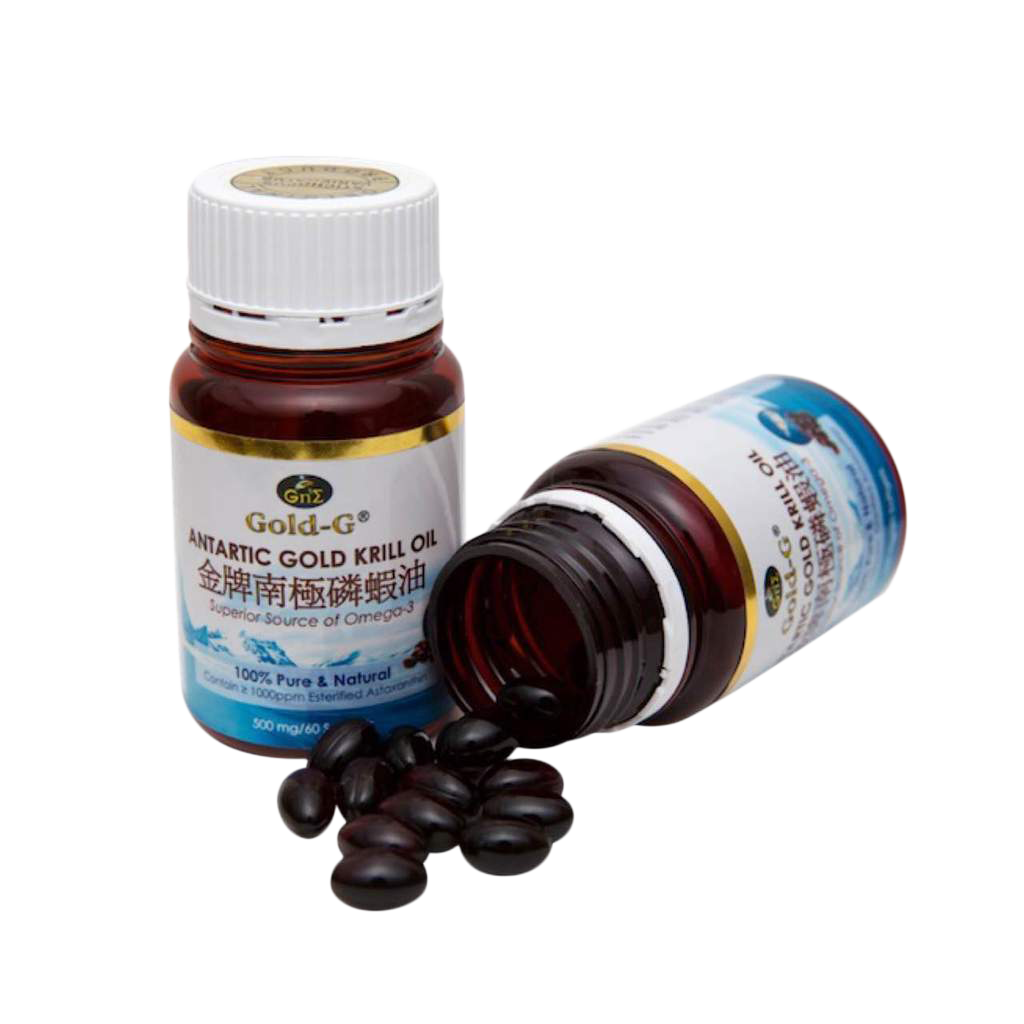Many women suffer from premenstrual syndrome (PMS) regardless of nationalities, races and skin tones. PMS could occur several days before the menstrual period, which will lead to mood swings, anxiety, bloating, cramps, headache, and fatigue. The severity of PMS symptoms could even interfere with work, social activities, or relationship. Researchers claimed that about 20% to 50% of women have PMS, and the symptoms of PMS will get worse over time, especially when women reach their late 30s or 40s. Besides that, PMS might cause other health problems.
Since there is no solution that can 100% cure PMS, there is an increasing number of studies proposed several solutions that could improve PMS symptoms, such as using medications, herbal products, dietary supplements, acupuncture, massage, and many more. Besides, there are studies suggested that omega-3 fatty acids may reduce the symptoms of PMS and also relieve dysmenorrhea . Supplement that contains omega-3 fatty acids has a significant effect on improving PMS and dysmenorrhea.
The researchers from University of Montreal have conducted a clinical study to evaluate the effectiveness of two types of omega-3 supplements, krill oil and fish oil on the management of PMS and dysmenorrhea.
They recruited 70 patients diagnosed with PMS and were assigned to receive equal dosage of either krill oil or fish oil on a daily basis for 90 days.
The result of this study show that krill oil is more effective in reducing the symptoms of dysmenorrhea and PMS as compared to fish oil. It is also shown to be more effective in managing PMS.
Krill oil contains a high amount of omega-3 fatty acids in phospholipid form. Phospholipids are the primary structures of human cell membranes. Therefore, omega-3 fatty acids in phospholipid form could be more effectively absorbed and utilized by our body cells! Also, krill oil contains astaxanthin, a natural antioxidant can help in reducing inflammation and relieves dysmenorrhea associated pain. Thus, krill oil can reduce the symptoms of PMS and dysmenorrhea more effectively.
GNE Gold Krill Oil is an excellent krill oil supplement.
Each 500 mg krill oil softgel contains 140 mg of omega-3 fatty acids, 210 mg of phospholipids, and up to 1000 ppm of astaxanthin!
GNE Gold Krill Oil is manufactured by the factory which is certified by Good Manufacturing Practices certification, Food Safety System certification, and Hazard Analysis and Critical Control Point certification.
Besides, the factory has obtained the Friend of the Sea certification and registered as a member of the Global Organization of EPA DHA Omega-3s (GOED). The factory also holds a unique patent for the krill oil extraction technology!
Click the link below for direct purchase.
References:
- 经前综合症(PMS). https://www.msdmanuals.com/zh/home/quick-facts-women-s-health-issues/menstrual-disorders-and-abnormal-vaginal-bleeding/premenstrual-syndrome-pms
- PMS relief. (2018, March 16). Retrieved December 16, 2020, from https://www.womenshealth.gov/menstrual-cycle/premenstrual-syndrome
- InformedHealth.org [Internet]. Cologne, Germany: Institute for Quality and Efficiency in Health Care (IQWiG); 2006-. Premenstrual syndrome: Treatment for PMS. [Updated 2017 Jun 14]. Available from: https://www.ncbi .nlm.nih.gov/books/NBK279264/ https://www.sciencedirect.com/science/article/abs/pii/S0965229912001744
- Rahbar, N., Asgharzadeh, N., & Ghorbani, R. (2012). Effect of omega-3 fatty acids on intensity of primary dysmenorrhea. International journal of gynaecology and obstetrics: the official organ of the International Federation of Gynaecology and Obstetrics, 117(1), 45–47. https://doi.org/10.1016/j.ijgo.2011.11.019 https://pubmed.ncbi.nlm.nih.gov/22261128/
- Sampalis, F., Bunea, R., Pelland, M. F., Kowalski, O., Duguet, N., & Dupuis, S. (2003). Evaluation of the effects of Neptune Krill Oil on the management of premenstrual syndrome and dysmenorrhea. Alternative medicine review : a journal of clinical therapeutic, 8(2), 171–179. https://pubmed.ncbi.nlm.nih.gov/12777162/
- Santanam, N., Kavtaradze, N., Murphy, A., Dominguez, C., & Parthasarathy, S. (2013). Antioxidant supplementation reduces endometriosis-related pelvic pain in humans. Translational research : the journal of laboratory and clinical medicine, 161(3), 189–195. https://doi.org/10.1016/j.trsl.2012.05.001 https://www.ncbi.nlm.nih.gov/pmc/articles/PMC3484190/
This website does not provide medical advice. The content of this website, such as graphics, images, text and all other materials, is provided for reference and educational purposes only. The content is not meant to be complete or exhaustive or to apply to any specific individual’s medical condition. Always seek the advice of your doctor or other qualified health provider regarding a medical condition.





